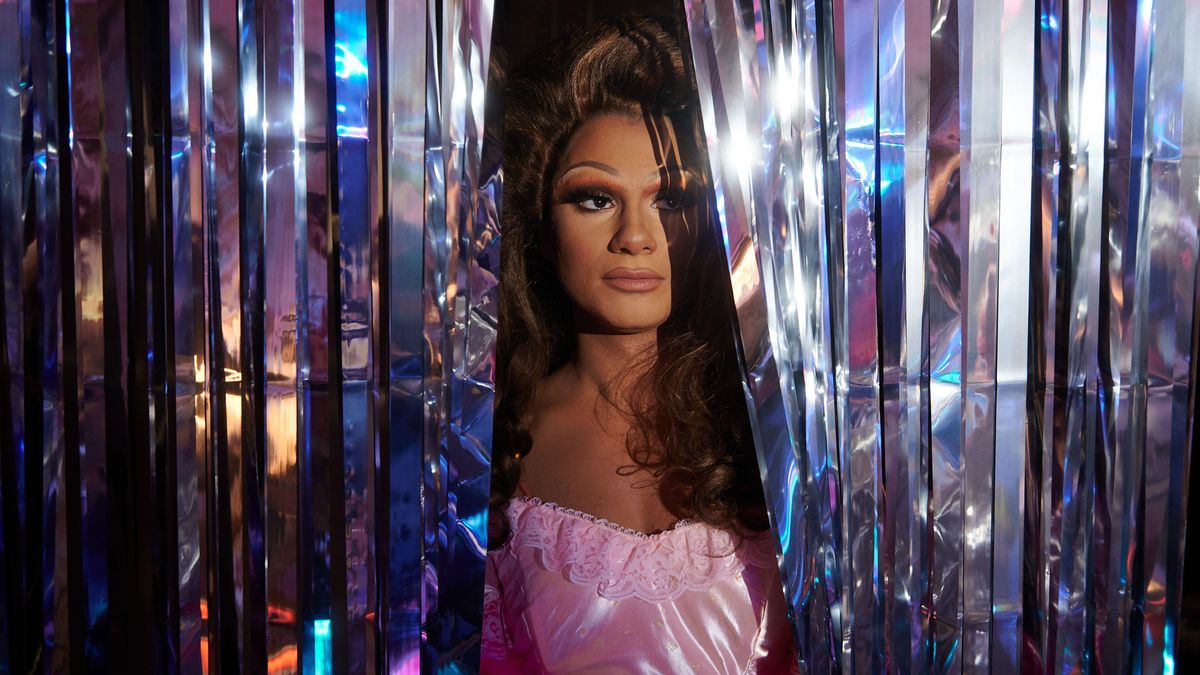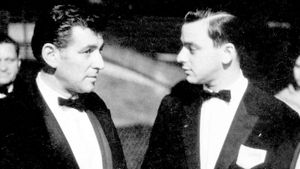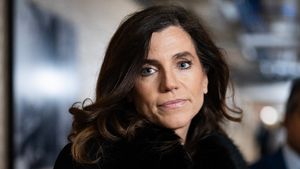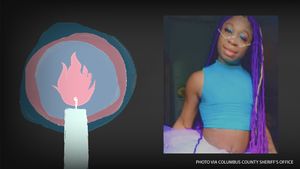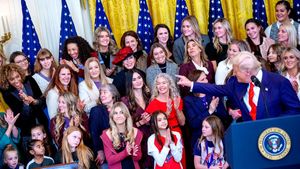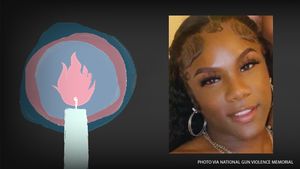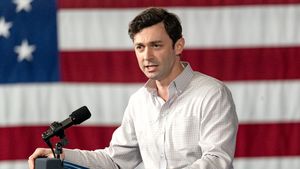The first film I saw at my first-ever Sundance Film Festival this year was Layla, a drama about a nonbinary British-Arab drag queen trying to make a relationship work while staying true to themself.
It was a brilliant and beautiful way to kick off the festival, and by the end of my time in Park City, the film still stuck with me as a powerful message of finding joy, love, and acceptance in being uniquely you.
I got to sit down with writer/director Amrou Al-Kadhi (they/them), as well as stars Bilal Hasna (Layla) and Louis Greatorex (Max) to talk about the film while at the festival.
Out: Layla was my first movie I got to see here at Sundance, and it was a great way to kick off the festival. Have you done drag before?
Bilal Hasna: I had done drag in a very amateur capacity at university, but nothing in a professional capacity. This was my first time actually being in drag in a professional way, being costumed, lip syncing properly under the lights, and in front of a big crowd.
As a child I used to make music videos with my cousins (back in the day Ramadan used to always fall in the summer) and we’d spend all day, because we couldn't eat, making these music videos and I’d dress up basically, and that was my first experience in drag. So this film has felt like a real full-circle moment and realization of all those little experiences.
So how did you go about creating Layla’s drag look and persona?
Amrou Al-Kadhi: Well I’m a drag queen myself since I was about 19, so over a decade of drag. A lot of Layla’s aesthetic was born from my drag experience. But obviously, Layla is not Glamrou, that’s my drag character.
I think Layla as a character has loads of different sorts of permutations of their identity, and we wanted that to be the same for their drag. So Layla’s drag also goes on its own journey in the film. At the beginning, they’re kind of dressing a little bit more ‘white,’ and then that big drag performance in the middle you see Layla embodying their more ‘repulsive’ side. At the end, obviously their drag is much more inspired by their heritage.
I want to talk about the high heel scene! (Spoiler: at one point in the movie, Layla, who had previously been shown bottoming, tops Max while using one of their high heels as a sex toy).
Al-Kadhi: [Layla’s] been really femme presenting at the top of the film, and then they enter this relationship and they start diluting who they are, and they’re starting to find their voice again. I think Layla wants to literally insert their femininity back into the relationship.
I think it’s also about Max becoming more comfortable with it, because Max has slightly sort of disrespected who Layla actually is. And then Layla comes back into his life, and I think Max is starting to realize how much he actually likes this person. So I think he wants Layla to put themselves in him.
Hasna: When I read it for the first time, it was extremely exciting. I was like, ‘Oh my God, this is going to be extraordinary on film. I’ve never seen anything like this before.’ And when we actually came to choreographing it, we realized that what is going on beneath the surface that these characters might not even be aware of in the moment because they’re just so lustful for each other.
Al-Kadhi: The sex scenes are really key for me in the film because I think that is when they’re most communicative with each other. They obviously are hiding a lot between each other and they’re not communicating, so I think the sex scenes are where they both just connect really well when the other bits of the relationship are under murky water.
The movie also has strong messages about family, including a storyline about Layla reconnecting with their sister, who they had pushed away out of fear that she’d be homophobic. Why was that important to you?
Al-Kadhi: In a lot of narratives around queer people from diaspora communities, the more expected narrative is that the family is rejecting the queer person, but what we wanted to see in Layla is how it is actually Layla who’s rejecting their family.
There is trauma there, but we all have trauma with our family. Sometimes it’s really bad and sometimes it’s slight. Layla feels quite alone, but they are slighting choosing to be alone, and there is love being given to them that they’re not accepting.
Hasna: Something that drew me to the script is often queer films are centered around trauma and suffering, and queer characters are presented through the framework of victimhood. I think in doing that, often queer characters are removed of their agency, their ability to perform badly, their ability to manipulate people, their ability to be selfish, their ability to exploit their own trauma for romantic or personal gain.
I’m so proud that we showcase a character that is three dimensional in that way, who is capable of being, at times, quite narcissistic, I think, and uncommunicative as well. I think the film also cleverly demonstrates how Layla has gotten themselves into that situation.
